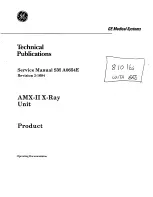
Instruction 0024-9395
23
Fyrite Pro
4.3 Operating Tips
• When an analyzer is brought in from a cold vehicle, let it warm up
slowly to minimize condensation. Temperatures below freezing will not
damage the analyzer; however, bringing a cold analyzer into a warm,
humid environment may cause condensate to form inside the case.
• If the CO channel (Model 100/105/120/125) is set up for Auto Zero
(refer to Section 3.5.3), ensure that the analyzer is sampling fresh air
when turned ON. Pulling a flue-gas sample through the analyzer dur-
ing its warm-up period will not damage the analyzer, but it will result
in incorrect CO readings. Also note that a CO sensor error will occur if
the detected CO level is above 50 ppm during warm-up.
• For analyzers that are used to measure flue-gas, note that flue-gas
condensate is acidic and very corrosive. It is important not to allow
the analyzer’s internal components to become soaked in condensate for
long periods of time.
• Before each use, inspect the filter element of the water-trap / filter as-
sembly. Replace the filter if it looks dirty.
• When sampling flue-gas, keep the analyzer above the water-trap, and
keep the trap in a vertical position. This will maximize the effective-
ness of the trap and keep liquid condensate from being drawn directly
into the analyzer.
• When liquid condensate is seen inside the water trap, empty the trap
before it becomes full. Refer to Section 5.8.
• It is recommended that the analyzer be purged after taking a flue-gas
measurement before turning it OFF. Once the probe is removed from
the stack, disconnect the hose assembly from the bottom of the analyz-
er and let the pump run for 10 minutes or so to completely remove any
remaining flue gases and dry any condensate from inside the sensor
chamber.
• When storing the analyzer, it’s a good idea to empty the water trap and
leave it open to further dry it out.
• Calibrate the analyzer every 6 months to ensure its accuracy.
















































